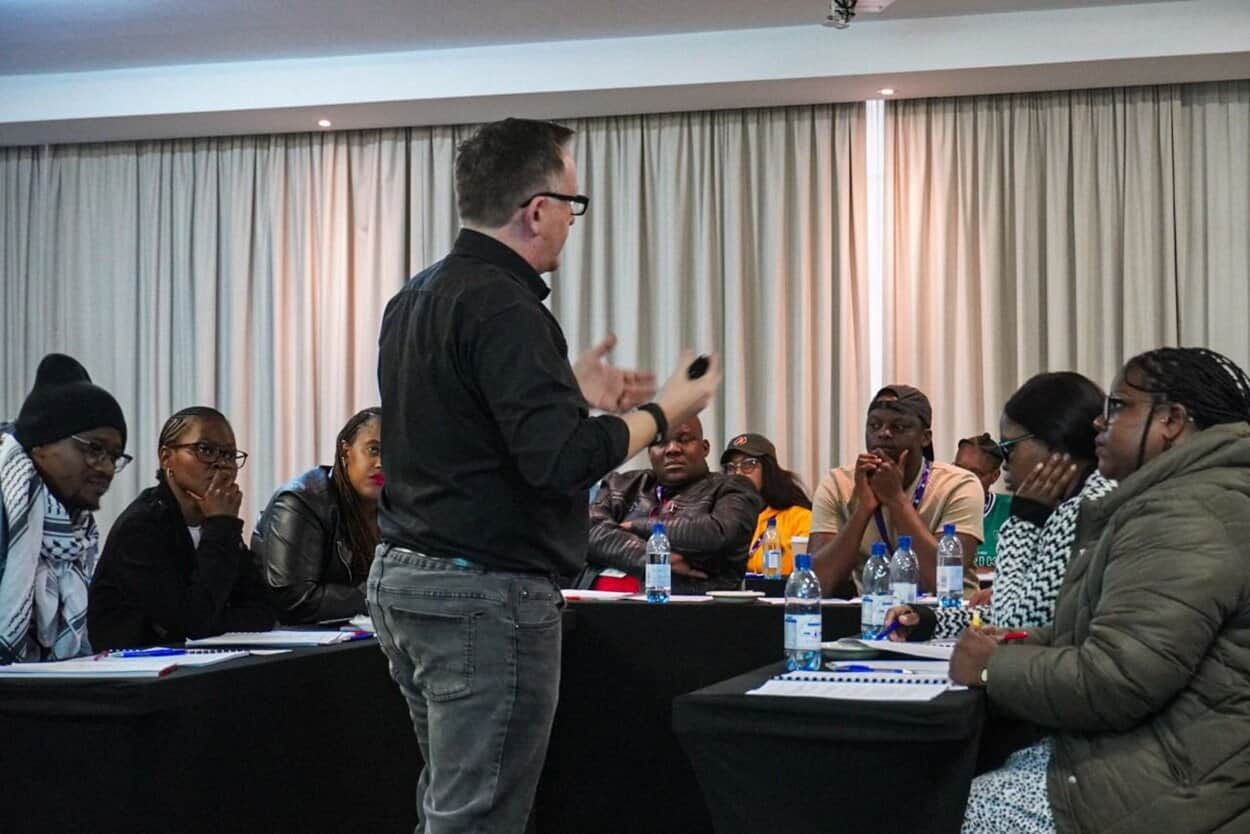Trade unions from major federations unite to discuss economy, politics, and alternatives to neoliberalism in short course.

Political economy and economic policy was, for the first time, part of a short course for trade unions by Rhodes University-based Neil Aggett Labour Studies Unit (Nalsu).
In the ’80s and early ’90s, union members, particularly shop stewards and officials, attended only seminars on bargaining and how to handle legislative provisions pertaining to strikes and lockouts.
The course was attended by workers from across the country employed in the manufacturing, metal and engineering industries and affiliated to the country’s four major labour federations – Cosatu, Federation of Unions of South Africa (Fedusa), National Council of Trade Unions and South African Federation of Trade Unions.
Trade union members studied political economy and neoliberalism
It was hosted in partnership with the Manufacturing, Engineering and Related Services Sector Education and Training Authority.
Workers cast aside their political differences to get involved in energetic debates about the state and capitalism, which was facilitated by Nalsu’s director, Prof Lucien van der Walt.
ALSO READ: FlySafair pilots down tools, travellers warned of delays and cancellations
David Fryer of Rhodes’ department of economics and economic history, facilitated a conversation on unpacking economic liberalism and neoclassical economics.
The debate touched on home issues, as the workers discussed an alternative to neoliberalism and the Growth, Employment and Redistribution (Gear) economic policy.
Van der Walt led the debate on what moved the world towards neoliberalism and the ’90s Washington Consensus, which are dominating the world and causing tension between the global south and the global north nations.
Unions slanted towards socialism
The majority of South African trade unions are slanted towards socialism as an ideology, hence they were classified as part of the left of the country’s political spectrum.
The knowledge of political economy features is required in shop floor and bargaining chamber talks, making the Nalsu’s short course one of vehicles to arm the workers on how to deal with the issues on a theoretically informed basis.
NOW READ: Motor industry union hosts Pain charity drive against dogfighting






